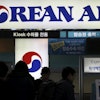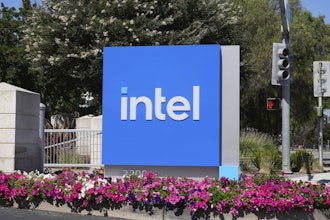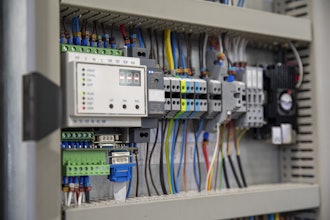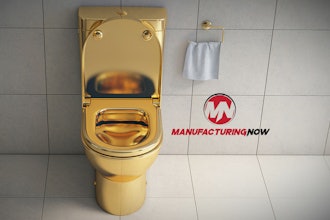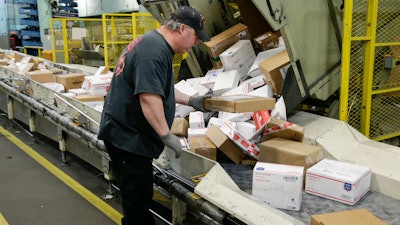
GENEVA (AP) — President Donald Trump's trade adviser hailed a "big deal" approved as a compromise Wednesday that will increase the fees the U.S. Postal Service collects from some foreign counterparts and keep the United States from leaving the United Nations' postal agency over what was largely a showdown with China.
Peter Navarro was dispatched from Washington with a U.S. delegation to help reform the Universal Postal Union at a time when e-commerce has vastly reshaped the postal business and private, non-postal operators like UPS, DHL, FedEx and others want to snare a larger market share. The administration had threatened leaving a group the United States helped create in 1874.
The head of the 192-member body, Kenya's Bishar Hussein, warned a U.S. walkout would "completely shut down" the traditional system of shipping some types of mail. The extraordinary congress, called this week to respond to the U.S. threat, was only the third for a 145-year-old group that calls itself the second-oldest multilateral organization.
UPU members exchanged hugs, handshakes and high-fives after voting by acclamation in favor of the compromise. The deal, which is to be phased-in over the coming years, will allow countries to choose, or "self-declare," the rates their postal operators can recoup from foreign partners.
"It's a big deal for a couple of reasons: One is the U.S. got immediate self-declared rates that saves us a half-a-billion dollars. It eliminates market distortions. It creates tens of thousands of jobs for America. It also helps our friends and allies in other nations," said Navarro, insisting countries like Brazil, Norway and Finland were "getting hammered" under the current system.
The United States will fast-track to "immediate self-declared rates" as of the end of June next year, which is the fastest technically possible, Navarro said. The administration has sought to end a decades-old practice by which the United States in essence subsidizes postal operators from developing countries, insisting that rising rival China in particular has been benefiting unfairly.
The administration's complaint centered on the reimbursement that the USPS receives for providing final deliveries of "bulky letters and small parcels" sent from abroad — usually ones not weighing more than 4.5 pounds. Such mail can include high-value items like mobile phones, memory sticks or pharmaceuticals.
The issue centers on the "last leg" of shipments, once the bulky letters and small parcels leave their country of origin — where the postage is paid — and enter a destination country. That requires postal services in the destination countries to incur costs that they later have to scratch back from the originating country.
Kate Muth, executive director of the International Mailers Advisory Group, which counts companies like eBay, DHL, Amazon, USPS or their affiliates as members, said the upshot of self-declared U.S. rates will be higher costs to ship through the postal system.
Navarro claimed a victory for both the United States and the UPU overall — and China joined 34 countries that helped drive through the final accord. He said the accord would include payouts of $40 million over five years, a sum more than offset by "anywhere from $300 million to $500 million in savings and subsidies" elsewhere.
Under the accord, member countries that meet certain requirements — such as that letter and postal volumes exceeded 75,000 metric tons based on 2018 data — can self-declare their rates starting July 1. Smaller, lower-volume countries get "thresholds" to protect them from the impact of "swift reform," the UPU said in a statement.
In what had shaped up as a test of U.S. diplomatic clout against China's interest in the status quo, Navarro said: "China is certainly going to pay more for the privilege of shipping to our market."
"We'll buy less Chinese stuff and we'll buy more stuff from other countries, and we'll make more stuff in America — and the market will be free of distortions," he said. "We call it a hat trick in hockey."
The U.S. Chamber of Commerce, which supported the administration in its push, applauded the deal. "The administration deserves a tremendous amount of credit for their leadership in tackling an antiquated, market distorting global pricing arrangement that for too long has seen the United States footing the bill to deliver the rest of world's mail," said Sean Heather, the chamber's senior vice president for International Regulatory Affairs, in a statement.
Darlene Superville contributed from Washington.



